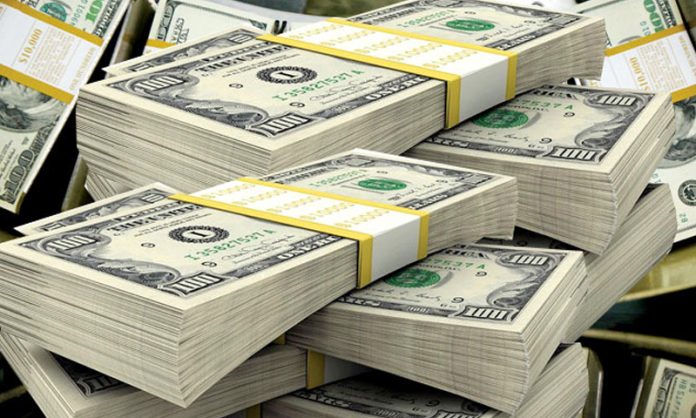HONG KONG: The dollar surged against its peers Thursday and most Asian markets tumbled after the Federal Reserve indicated it will likely embark on a steeper path of interest rate hikes over the next year.
Investors were sent scurrying on the prospect of tighter borrowing costs as the Federal Reserve positions itself for an expected jump in inflation if Donald Trump makes good on promises to ramp up infrastructure spending and slash taxes.
While the decision to lift rates had been a certainty, a plan to lift rates three times rather than the expected twice jolted trading floors.
The news sent the dollar soaring well past 117 yen and its highest level since February, while it also bulldozed other currencies, particularly higher-yielding, risker, units and those of emerging market nations.
“This is flat out hawkish, and the US dollar is reacting accordingly,” Stephen Innes, senior trader at OANDA, said in a note. “I thought we would be calling the (Fed chief Janet) Yellen bluff this morning, as the market had expected at most a subtle shift in Fed language.
“However, the Fed’s forward guidance is in reaction to Trumpflation as Dr Yellen did little to quell the markets’ pent up the view that both growth and inflation will accelerate in 2017.”
In early Asian trade the greenback pushed towards 118 yen and jumped more than one percent against the Australian, Canadian and New Zealand dollars, as well as the Mexican peso.
– ‘Big event’ –
It was also up 0.9 percent on the South Korean won and 0.5 percent versus Indonesia’s rupiah. The Thai baht, Malaysian ringgit and Singapore dollar also suffered heavy losses.
In her post-announcement conference, Yellen said the rise was a reflection of “the confidence we have in the progress that the economy has made and our judgment that that progress will continue”.
However, the upbeat outlook for the key driver of global growth was unable to comfort Asian traders worried about a flood of cash out of their own economies as dealers look for better returns in the US.
Hong Kong sank 1.2 percent and Shanghai lost 0.9 percent while Sydney was 0.8 percent lower, Seoul shed 0.4 percent and Singapore 0.7 percent.
Manila was more than one percent down while Taipei, Kuala Lumpur and Wellington were also sharply lower.
However, Tokyo was up 0.2 percent — heading for a ninth successive gain — as the weaker yen provided support for exporters.
Greg McKenna, chief market strategist at CFD and FX provider AxiTrader, said: “This is a big event… the Fed has straight-batted it but is hiking and signalling more than the market expected just on current economic settings.”
The decision also led to sharp increases in the yield of 10-year US Treasury bills, while gold — a safe investment in times of uncertainty — fell almost two percent to $1,142.





